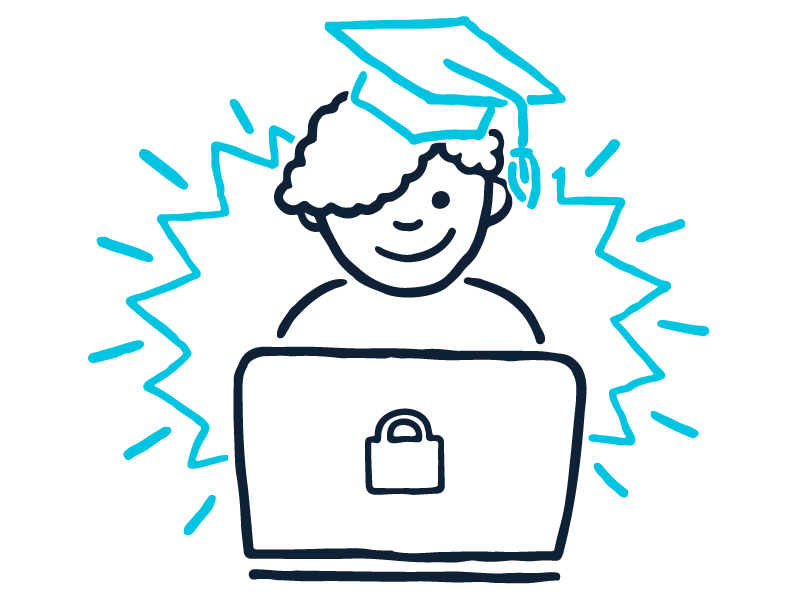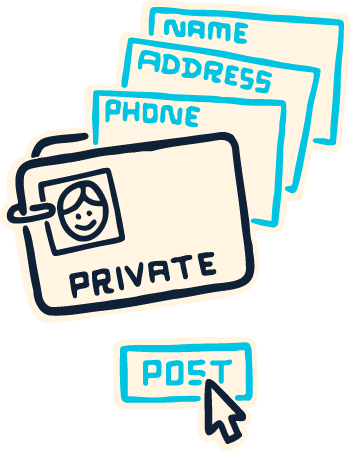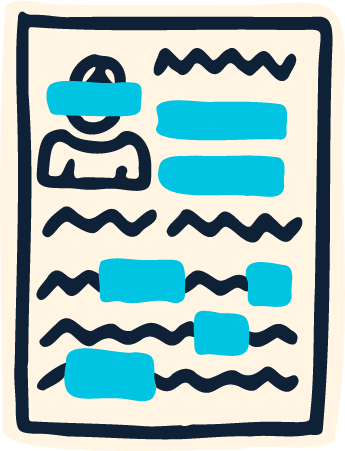We've already given up a LOT of personal data, just by using the web. Who wants it, and what can we do wrest it back under our own control?

Transcript
Davis: Let’s talk for a bit about what to do now that so many of us have been tracked around the web for the better part of the last 20 years. David, welcome. There’s already so much information about us available online. To what extent is all this data we generate combined with information from other sources? I’m thinking about financial institutions, government agencies, and other entities that collect our data.
David: Well, unfortunately in the U.S., we have a particularly spooky data broker industry in which data broker companies go to places that do in fact package up your data and slap a price tag on it And they buy more of it from more places repackage that and then sell it.
Data brokers specialize in collecting particularly sensitive data.
These kind of services exist for things like performing informal background checks for example but unfortunately can be used for online harassment and abuse.
Davis: Can you say more about that? What do you mean by online harassment and abuse?
David: Data brokers specialize in collecting particularly sensitive data. Things like your phone number, home address, birthday, lists of possible family members and their phone numbers and addresses, and so on. And online harassers can buy access to that kind of data and post it publicly online as an intimidation tactic. This is called doxing and can lead to lots of strangers calling you or in some cases sending unwanted pizza delivery or S.W.A.T. team to your home.
Davis: Yeah, it’s a one thing to have pizza delivered to you but quite another to have a S.W.A.T. team arrive particularly like in the middle of the night or something. So, yeah, that’s a dark side of the data industry for sure.
What if anything at all can be done about the data that’s already out there? How can we stem the tide of all this this information floating around about us?
David: For data brokers, most of them have a means of opting out and services like Abine’s DeleteMe, for example, let you pay for someone to opt out of most of the data brokers out there for you. My friend Yael Grauer also has a list of data brokers and instructions on how to opt out from each, which we’ll include below as well.
Davis: To what extent do data brokers take in and sell information about our offline activity? Say, does the data online get matched up with our credit card information or anything like that?
Refusing data-collecting discount programs and using cash helps reduce the amount of data being collected about you.
David: Sort of. It really depends on the credit card’s privacy policies as well as the policies of the merchant you’re using the card with and even the, you know, separate policy of the cash register that they’re using and that data can end up being sold and end up in the hands of data brokers in some cases. Many of the discount programs like those you get asked to sign up for at stores where you, you know, you scan a barcode and you get a discount. Those end up selling some of your personal data usually as part of the deal.
If the cash register has ever asked you to enter in your birthday, that’s unfortunately likely because that bit of data is also for sale. Refusing these data collecting discount programs and using cash helps reduce the amount of data being collected about you a lot though.
Davis: Right, that’s actually why I give different birthdays for different services. So Facebook now wishes me a happy birthday on January 1st even though my birthday’s in October. I like throwing them off their trail with that whole thing. So, back to the online world. I know I for one see a lot of very highly targeted ads on places like Facebook and Instagram. Speaking of, can we ask sites like this to forget what they know about us?
David: Yeah, since Meta, Facebook’s parent company, runs its own ad network, the targeted ads you see on Facebook and Instagram can be less targeted by going to your Facebook settings, basically. If you go to your Facebook information, you can look at your off-Facebook activity and then clear it from there this will vastly minimize the ability to target ads at you within Facebook. and Facebook’s properties but ultimately Facebook’s main goal is to know everything about you. So there’s always going to be some data they will collect about you unless you delete your Facebook account entirely.
Facebook’s main goal is to know everything about you. So there’s always going to be some data they will collect about you unless you delete your Facebook account entirely.
Davis: How much good does it do to clear history on your browsers?
David: Your browser has a list of websites you visited called your history. So this this list is kept on the computer you’re using that web browser on. So clearing your history clears it from the computer so that other people using that same computer can’t snoop on what websites you visited the websites and ads on those websites that you visited, however, create their own record of your visit on their end and it’s ultimately up to them to decide how long to keep those records around.
Davis: So, when using the library, for instance, it would be good to advise patrons to clear their browser history, if you don’t have software that does it for them already. What other tips would you like to share about curbing access to data that’s been collecting about us so far?
David: So Google, Facebook, and other major sites have settings that let you delete records of past activities on their websites and apps and I would look into that next. Both Google and Facebook own an outsized portion of the online ad markets within the U.S., so trimming the list of characteristics either platform has inferred from your online activities can actually go a really long way.
Davis: Great, thank you for all these tips. We’re going to talk in episode 5 about how to help library patrons and where library staff can go to learn more, so, David, thanks for being with us, and we’ll talk to you soon.
Further Reading
DeleteMe
A product you can pay for that helps remove your personal information from the web.Big Ass Data Broker Opt-Out List
Yael Grauer's guide to removing your personal data from sites run by data brokers or companies that sell bulk access to your personal information. This list is updated regularlyHow To Delete Your Facebook Account
Mozilla's guide for deleting your accountHow to Clear Your Cache on Any Browser
PC Magazine's guide to clearing your browser history and your cache on Chrome, Internet Explorer, Firefox, Safari and other browsers
Relevant Terms
Data Broker
an individual or company that specializes in collecting personal data or data about companies, mostly from public records but sometimes sourced privately, and selling or licensing such information to third parties for a variety of uses.
Doxing
the act of publicly revealing previously private personal information about an individual or organization, typically via the Internet. Methods employed to acquire such information include searching publicly available databases and social media websites, hacking, social engineering.
Contributor Bios
- Davis Erin Anderson is Director of Programs and Partnerships at METRO Library Council.
- David Huerta is a Digital Security Trainer at Freedom of the Press Foundation, where he trains journalists in privacy-enhancing technology to empower a free press. He’s taught hundreds of trainings across the world and has previously organized the digital security track at the National Association of Hispanic Journalists (NAHJ) conference. He’s also spoken on the subject of usable privacy technology at DEF CON, Radical Networks, Rightscon, Facets, Allied Media Conference and anywhere the words "use PGP" summon him to a stump speech.
- This project is funded by the Mayor’s Office of the Chief Technology Officer, and produced in collaboration with Brooklyn Public Library, The New York Public Library, and Queens Public Library.


